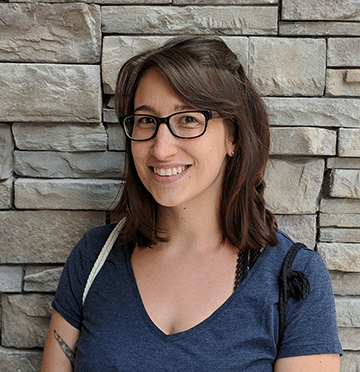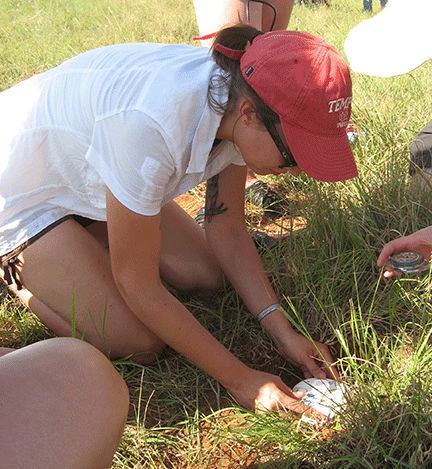Geophysics Grad Student Wins Top Research Award At Seismology Conference
September 5, 2018
Emily Morton earns accolades for work on Cascadia earthquakes
SOCORRO, N.M. – Emily Morton, doctoral student in geophysics, earned the top student award at the Seismology Society of America conference in Miami.
 She earned top marks for her talk titled, “Newly Detected Small Earthquakes to Delineate
Fault Heterogeneities in the Cascadia Seismogenic Zone.” Morton, along with her advisor,
Dr. Sue Bilek, are using data collected from a four-year-long community-wide research
collaboration in the Pacific Ocean off the coast of Washington and Oregon.
She earned top marks for her talk titled, “Newly Detected Small Earthquakes to Delineate
Fault Heterogeneities in the Cascadia Seismogenic Zone.” Morton, along with her advisor,
Dr. Sue Bilek, are using data collected from a four-year-long community-wide research
collaboration in the Pacific Ocean off the coast of Washington and Oregon.
“This really is an unprecedented experiment,” Morton said. “We are using an automated method to look for small earthquakes on the ocean bottom and we’re finding more than we previously found. We are using those to map out differences in the fault interface. Part of the problem is that no one sees these earthquakes because they are too far from land. That’s why it’s such a big deal to have ocean-bottom sensors.”
Morton and colleagues are looking at the Cascadia subduction zone quakes that occur miles off-shore. The array of 60 seismometers on the ocean floor has recorded many events between 1.0 and 4.0 on the moment magnitude scale.
 Morton is using an automatic earthquake-detection program developed at Los Alamos
National Laboratory to comb through data. She is also using open-source location programs
to pinpoint locations of seismic events.
Morton is using an automatic earthquake-detection program developed at Los Alamos
National Laboratory to comb through data. She is also using open-source location programs
to pinpoint locations of seismic events.
(Pictured at right: Emily Morton deploying seismic sensors during a recent field campaign in Oklahoma).
Cascadia – or the Pacific Northwest – is an active geologic zone that last experienced a major earthquake in 1700. Onshore geologic evidence – and historical data from Japan – indicate that event was a 9.0 quake. Scientists think the 1700 event was a 500-year event. Studying small earthquakes is expected to determine the location of future large quakes.
“Because of where Seattle is, it’ll get shaken pretty hard in a big event,” Morton said. “These small earthquakes are mostly offshore, but the full extent isn’t well known yet, so that’s a question we are going to answer.”
Morton’s research was funded by a National Science Foundation grant and served as her doctoral dissertation. She earned her bachelor’s at Temple University in Philadelphia and her master’s at NMT.
– NMT –